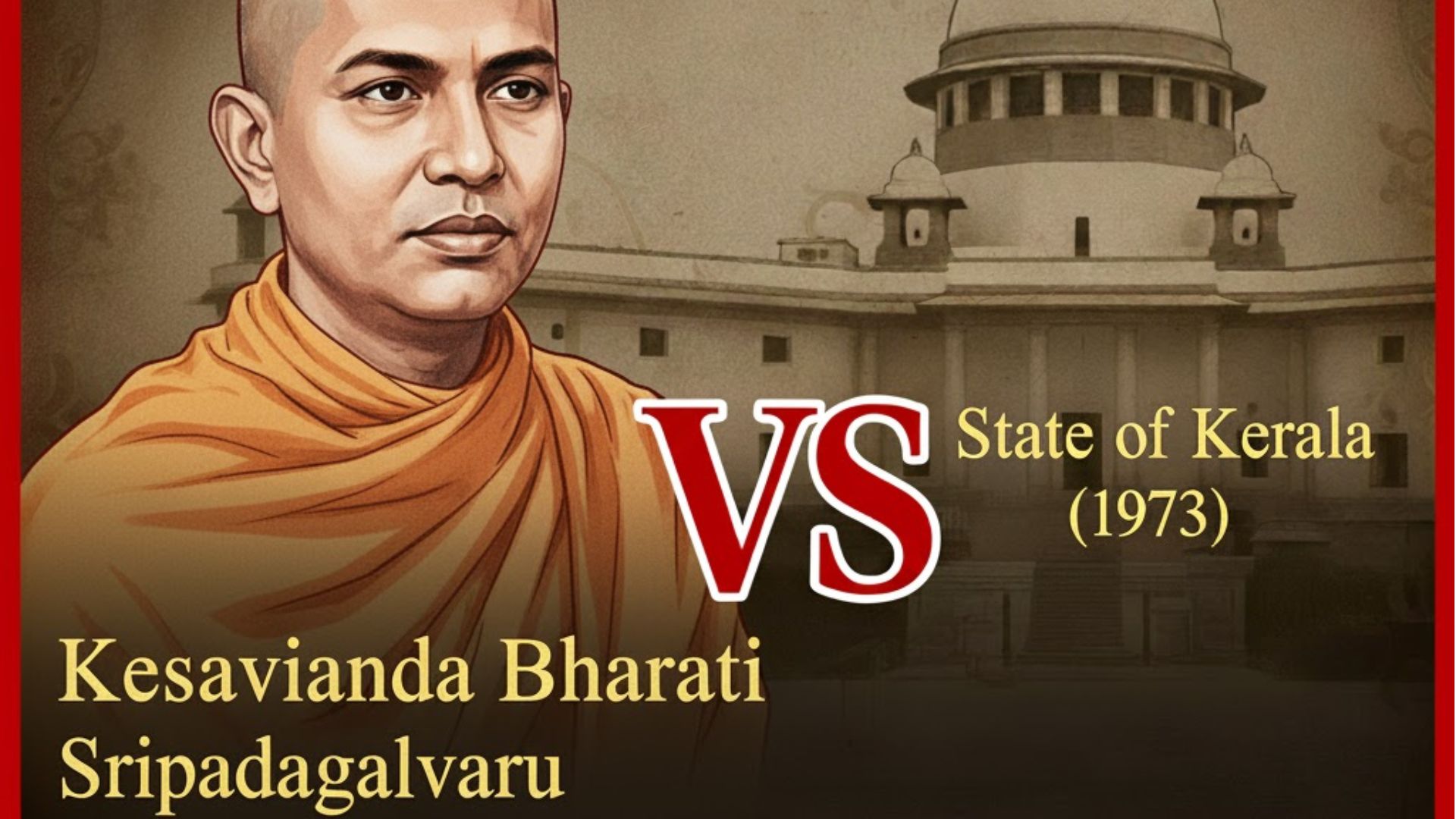
Case Summary - Kesavananda Bharati Sripadagalvaru Vs State of Kerala (1973)
(1973) 04 SC CK 0051
In The Supreme Court of India
Case No: Writ Petition No. 135 of 1970
Kesavananda Bharati Sripadagalvaru (Appellant)
Vs
State of Kerala (Respondent)
Date of Decision: 24-04-1973
Bench: Full Bench
Hon'ble Judges: S. M. Sikri, C.J; Y. V. Chandrachud, J; S. N. Dwivedi, J; P. Jaganmohan Reddy, J; M. Hameedullah Beg, J; K. S. Hegde, J; K. K. Mathew, J; J. M. Shelat, J; H. R. Khanna, J; D. G. Palekar, J; A. N. Ray, J; A. N. Grover, J; A. K. Mukherjea, J
Final Decision: Disposed Of
[Judgment Source]
https://www.courtkutchehry.com/Judgement/Search/AdvancedV2?docid=289511
All Citations
AIR 1973 SC 1461; (1973) 4 SCC 225; (1973) SCR (Supp) 1
Facts of the Case
Kesavananda Bharati, head of a religious mutt in Kerala, filed a writ petition challenging provisions of the Kerala Land Reforms Act, 1963, and its amendments, alleging violations of fundamental rights under Articles 25, 26, 14, 19(1)(f), and 31. During the proceedings, the Constitution (24th, 25th, and 29th Amendments) Acts were enacted, affecting property rights and placing the impugned laws in the Ninth Schedule. The case was referred to the largest-ever 13-judge bench to determine the scope of Parliament’s power to amend the Constitution under Article 368.
Law Points Raised
1. Whether Parliament's power to amend the Constitution under Article 368 is unlimited.
2. Whether fundamental rights can be abrogated or abridged through constitutional amendments.
3. Validity of the Constitution (24th, 25th, and 29th Amendments).
4. Applicability of Article 13(2) to constitutional amendments.
5. Whether there exists a 'basic structure' of the Constitution that cannot be altered.
Acts / Provisions / Articles Referred
• Constitution of India — Articles 1, 10, 100, 102(1), 103(1), 368, 13(2)
• Contract Act, 1872 — Sections 1, 104, 106, 106(2), 11
• Criminal Procedure Code, 1898 — Sections 18, 2, 29, 291, 3
• Evidence Act, 1872
Judgements Referred
• Golak Nath v. State of Punjab — Parliament cannot amend fundamental rights (overruled in part).
Obiter Dicta
The Constitution is not merely a legal document but a living framework ensuring liberty, equality, and democracy. The amending power cannot be used to destroy the essential features of the Constitution.
Ratio Decidendi
Parliament’s power to amend the Constitution under Article 368 does not include the power to alter or destroy its basic structure. The 'basic structure doctrine' includes supremacy of the Constitution, rule of law, separation of powers, judicial review, federalism, secularism, and protection of fundamental rights.
Final Ruling
The Supreme Court upheld the 24th and 25th Amendments but struck down parts of the 25th Amendment that curtailed judicial review. The 29th Amendment was upheld, but subject to basic structure limitations. This case established the 'Basic Structure Doctrine' as a permanent feature of Indian constitutional law.
Summary
The Kesavananda Bharati case is a constitutional milestone establishing that while Parliament has wide powers to amend the Constitution, it cannot alter its basic structure. This doctrine safeguards democracy, fundamental rights, and the core principles of the Constitution.
[Judgment Source]
https://www.courtkutchehry.com/Judgement/Search/AdvancedV2?docid=289511